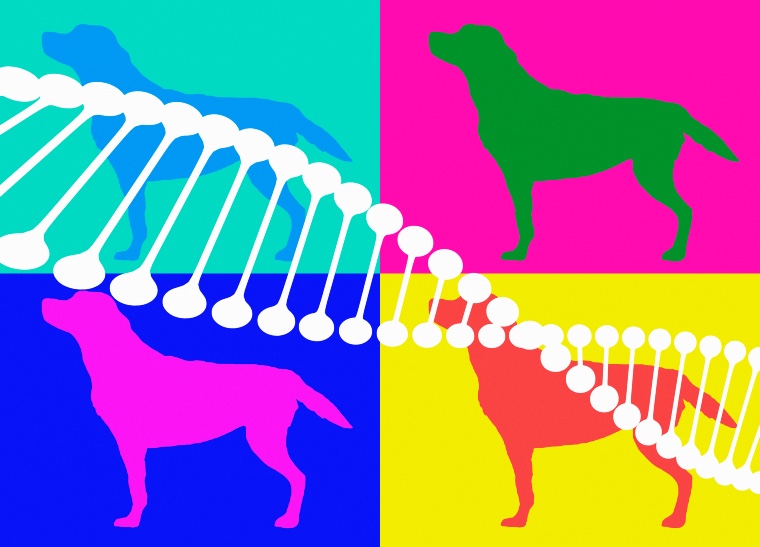In cities across the country, the advent of at-home DNA tests for dogs is spurring unlikely canine reunions.
Last week, the Philadelphia Inquirer spoke to Anne Malkoff and her partner Alexandra Cohn about their experience with doggy DNA testing. When the pair first adopted their dog, Goober, the shelter had few details about his past. According to Humane Animal Partners, the shelter Goober was adopted from, he was roughly one and a half years old and “probably a Schnauzer mix”.
Eventually, Malkoff said curiosity got the best of her. “Any time you take your dog out for a walk, people ask what kind of dog are they,” she said. “I was just so curious.” So, she purchased a DNA test from Embark for $100.
Reunited at last
To everyone’s surprise, the DNA test actually proved that Goober isn’t a Schnauzer at all. Instead, he was composed of part “Australian cattle dog, Chow Chow, Coonhound, and Pitbull”. But that wasn’t all. After sharing Goober’s information on Embark’s online platform, Malkoff found that her dog had two direct relatives nearby. Amazingly, Goober even had a brother living right in Philadelphia. After doing some research, Malkoff tracked down the other dog and contacted their owner.
Eventually, the long-lost brothers met at a local park in Fishtown; an unlikely reunion that wouldn’t be possible without this incredible new medical technology.
DNA tests are redefining pet ownership
Over the past few years, at-home DNA testing has experienced unprecedented growth. According to a Global Newswire press release, “an increase in awareness and acceptance of personalized medicine on a global level “ is the main driving force. As a result, companies pumping money into developing faster and quicker tests has brought production costs down, making the test more accessible for consumers.
However, increased access has also exposed a significant lack of education. Most importantly, experts are worried that dog owners are making preemptive decisions about their pets’ health based on test results. Specifically, the companies making these tests say genetic testing can help elucidate what underlying conditions our dogs could have. Unfortunately, the tests lack the specificity needed to diagnose illnesses. Instead, they risk creating unnecessary worry for dog owners.
“We have to come up with some mutually agreed upon ways to report these results,” Lisa Moses, MD told Science Magazine in 2018. Additionally, Dr. Moses said, “We’d need to have transparency on how the tests are done, how the science is done, and talk seriously about data sharing.” If we can learn to use genetic testing effectively, experts say, it could pave the way for new treatments for both humans and dogs.




